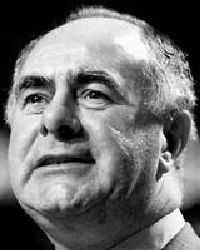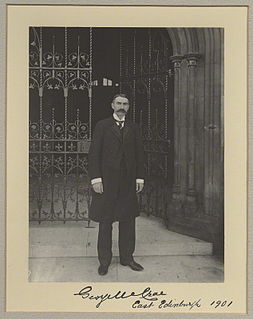Related Research Articles
Scottish Workers' Representation Committee was the parliamentary outfit of the Scottish Trades Union Congress from 1899 until 1909. It was known as the Scottish Workers Parliamentary Elections Committee until 1903. In contrast to the Labour Representation Committee (LRC) in England, SWRC was able to maintain organisational unity between different strands of ideological tendencies in Scotland, ranging from Marxist, Catholic and Fabian socialists.

The United Road Transport Union (URTU) is a trade union in the United Kingdom. It was founded in 1890 and has a membership of over 8,000. URTU is the UK's only union dedicated to serving the interests of workers in road haulage, distribution and logistics.

Harry Ewing, Baron Ewing of Kirkford, was a Labour politician in Scotland. He served as a Member of Parliament (MP) for 21 years, from a by-election in 1971 until the 1992 general election, when he became a life peer. He served as a junior minister in the Scottish Office from 1974 to 1979, responsible for devolution, and later chaired the Scottish Constitutional Convention from 1989 to 1996.
James Bell was a British trade unionist and Labour Party politician who represented Ormskirk from 1918–22. He was described by a fellow union official as "one of the shrewdest negotiators the trade unions in the cotton industry had ever had."

George Dallas was a British Labour Party politician.
Robert Climie was a Scottish trade unionist and Labour Party (UK) politician.

Colonel Sir George McCrae was a Scottish textile merchant and Liberal Party politician. In Scotland he is best remembered for the creation of McCrae's Battalion, also known as the Second Edinburgh Pals Battalion and (officially) the 16th Battalion Royal Scots.
Alfred Roger JephcottJP was a British engineer, trade unionist and Conservative Party politician from Birmingham. He sat in the House of Commons from 1918 to 1929.
Sir William James Simpson, often known as Bill Simpson, was a Scottish trade unionist and political activist.
Jim Gardner was a Scottish trade unionist.

The Friendly Society of Iron Founders of England, Ireland and Wales (FSIF) was an early trade union representing foundry workers in the United Kingdom.
Joseph Forbes Duncan was a Scottish trade unionist and politician.
Hugh Lyon was a Scottish trade union leader.
The Ironfounding Workers' Association was a trade union representing foundry workers in the United Kingdom, principally in Scotland.
William Devenay was a British trade unionist and politician.
Henry George John Brotherton was a British trade union leader.
Archibald Thomas Kidd was a long-standing British trade union leader.
Alexander Hutchison was a Scottish trade union leader who served as chair of the General Federation of Trade Unions (GFTU).
James Lunnon (1869–1952) was a British trade unionist and political activist.
James Fulton was a Scottish trade unionist.